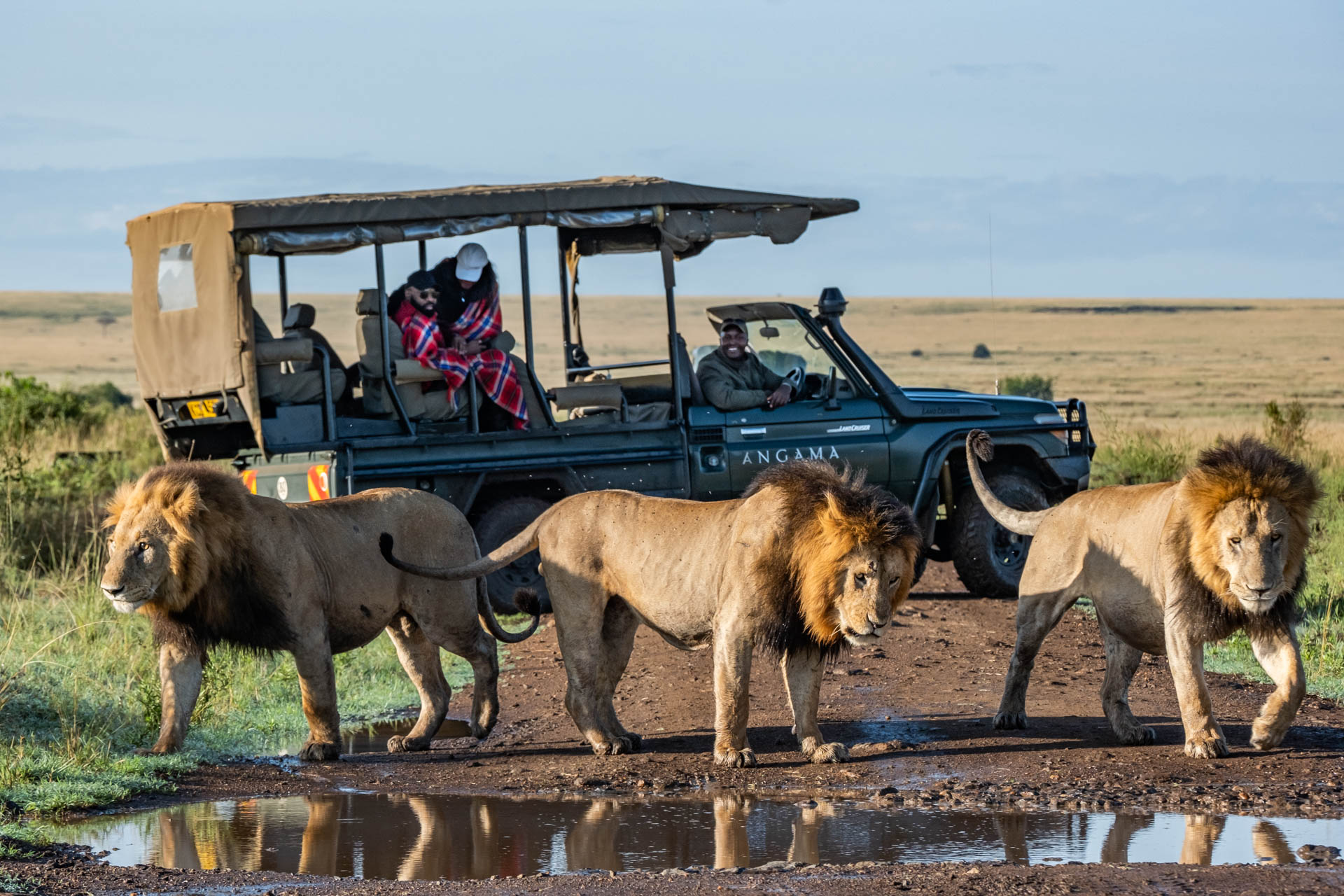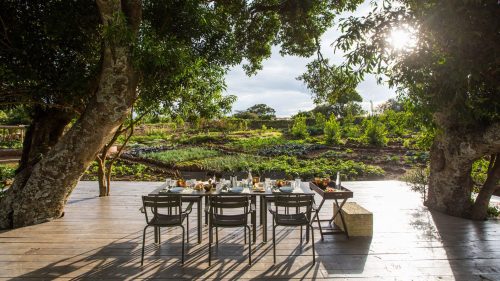
Lion family dynamics present a complex subject that is challenging to conclusively detail with utmost certainty. The intricate social structure involves the formation of strong bonds among females, who collaborate in the hunting and nurturing of their cubs. Conversely, males exhibit territorial behaviours, which often result in aggression toward one another. Territorial disputes and power struggles are an inherent aspect of their social ecology; this dynamic tension often leads to changes within the pride.
With a territory extending to both banks in the north of the Triangle, the five Bila Shaka boys — Koshoke, Kiok, Chongo, Doa and Kibogoyo — all born in 2014 into the Moniko Pride in the Olare Motorogi Conservancy, are increasingly spending their time venturing further into the Greater Mara. This shift in their territory usage is creating a power vacuum in the Mara Triangle. The Angama lioness lost her previous litter of four cubs who were sired by the Bila Shakas to a marauding male from the Southern region, emphasising the vulnerability when a territory is left unguarded.
The Angama lioness then mated with the 'cub killer' (as we affectionately call him) as well as three of the Bila Shaka boys, securing temporary security for the cubs as all four males think they are the fathers. The Angama lioness is currently nurturing her two cubs alongside the marauding male as well as a younger male who has broken off from the Owino Pride. This unique coalition has forged an intriguing bond; as they collaborate in hunting activities and collectively participate in the upbringing of the two cubs.
Nearby, the Swamp lioness is tending to her three (now sizeable) boys, along with the support of her sister. Despite the challenges faced by this modest pride in safeguarding and nurturing the growing cubs, they continue to thrive.
To the west of the Triangle along the Tanzanian border is the Sausage Tree Pride, under the leadership of Kinky Tail, likely the oldest female in the Triangle. This pride has a history marked by various takeovers, often involving males entering from the Serengeti. Presently, the protection of the pride rests on the shoulders of the two Lamai males who killed the former dominant male, Ol Donyo Paek, in August 2021.
A takeover of the Sausage Tree Pride resulted in the emergence of the Taliban males, also known as the Nyati males, because of their ability to hunt buffalo (or nyati in Swahili). After their father, Ol Donyo Paek's demise, the six young males ventured north from the border region, establishing their dominance in a more central area of the Triangle. These formidable males are growing in strength and audacity as they mature, though they did lose one member in a confrontation with the Inselberg males. Currently, the five surviving Nyati boys not only maintain control over their territory but have also sired cubs with the Egyptian Pride.
The Owino Pride, now situated within the territory controlled by the Nyati males, has undergone significant changes. The departure of the young Owino male, who formed a partnership with the marauding male and the Angama lioness, has left the pride with reduced numbers, estimated to be just three to four individuals. Observations of the Owino Pride have been limited, and there isn't much recent information to report. The last sighting involved a small cub, although unfortunately, it did not survive.
A new coalition of four independent males has emerged from the Egyptian Pride, marking their transition to adulthood. These males have staked a claim to a significant portion of the Inselberg's territory (which previously belonged to their father), currently avoiding confrontations with the Nyati males. Their presence has been notable, particularly during instances of successful buffalo kills, showcasing their growing strength. As they establish their independence, their interactions with other prides and coalitions, such as the Nyati and Inselberg males, add to the complex and ever-changing story in the area.
The intense territorial clash between the Nyati boys and Inselberg males, also known by some as the Ngiroare Nomads, resulted in the tragic loss of a member from each coalition; the original six Nyati boys are now down to five, and the Inselbergs are four with the demise of Spilt-lip. This confrontation unfolded as the Inselberg males moved eastward within the Triangle, leaving their previous territory vulnerable to the Nyati males' invasion. Manywele, Nusu, Ruka, and Ginger, the surviving members of the Inselberg coalition, have since established themselves in the region spanning from Serena Sundowner Hill to the Maji Machafu area.
The eastward movement of the Inselberg males brings them into direct conflict with the Serena males, who are in control of the Serena Pride, led by Long Face and his coalition. The Serena Pride is known for their elusive nature, often remaining concealed within the dense bushland around the Serena Area making sightings of the pride infrequent.
In the southern region of the Triangle extending into Tanzania, the Border Pride currently finds itself under the influence of new males from the Serengeti. The identity of these males is not yet well-known, but it has been observed that at least four of them have taken control of the females. The presence of these new males changes the dynamics of the Border Pride and as more information becomes available, their behaviour and interactions will likely become clearer.
As you can see, a lion’s complex society is built on cooperation, loyalty and fierce protection. Their profound connections mirror human family ties and we watch with bated breath as their stories keep unfolding right in front of us.
Filed under: The Mara
Subscribe for Weekly Stories
Comments (0):

The Angama Shamba